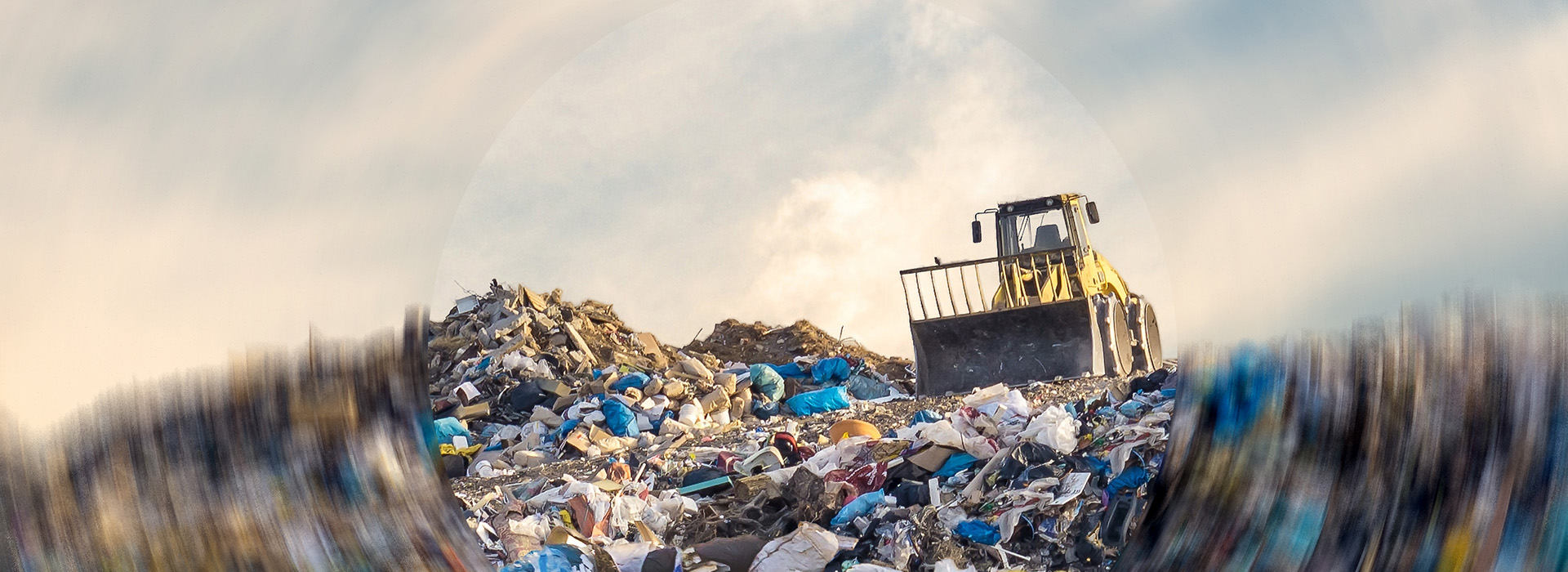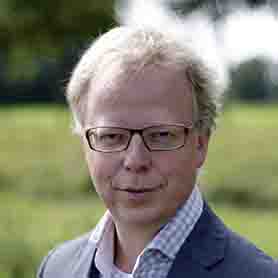Why We Need to Look at Waste Management Through a Different Lens
While the disposal and treatment of waste is a growing burden expected to reach 2.2 billion tonnes by 2025*, policies designed to manage waste are poorly understood and fragmented. Here, Robert Corijn, chair of the Refuse Derived Fuel (RDF) Industry Group talks to dss+ about why collaboration, the Global Methane Pledge and embracing the circular economy can help improve the outlook.


Robert Corijn
Refuse Derived Fuel (RDF) Industry Group
Q.
What is behind the EU's current disjointed approach to waste management, and what do you see as the impact?
We know that waste contributes to carbon emissions, yet policymaking is generally split across different ministries within national governments. There is no formal channel that links climate change initiatives to various industries to allow everyone to assess the overall impact of policies made. There's also the challenge of how European climate targets are translated nationally. So we will have a situation where one country will introduce waste management solutions tailored to their emissions policies and climate change agenda. Yet waste management strategies that decrease a country's ability to deal with waste only shift the problem to another location. We need to stop thinking of waste and its impact on climate change as a national issue; it's a global problem.
Q.
How can we improve our understanding of waste management decisions, and what actions will help?
Many more people understand and are on board with initiatives that help reduce the waste we produce, whether reducing food waste or recycling. However, transitioning to a sustainable waste platform is a long-term goal. We still need solutions to treat the billions of tons of waste within our society that must be disposed of efficiently and safely now. Not least, as there will always be a certain level of toxic waste that we need to consider. So we need some grown-up discussions on the impact of different waste management solutions and where they fit in the carbon reduction toolbox. Importantly, we need to collaborate internationally on waste management solutions rather than focus on national priorities. I currently have high hopes for the Global Methane Pledge between Europe and the US. This type of action will put a spotlight on waste management solutions and help educate the broader public on the challenges and benefits each waste management solution presents.
"We need some grown-up discussions on the impact of different waste management solutions and where they fit in the carbon reduction toolbox."
– Robert Corijn, Refuse Derived Fuel (RDF) Industry Group
Q.
Tell us more about the purpose of the Global Methane Pledge and its impact on the waste management sector?
Recent reports by the Intergovernmental Panel on Climate Change (IPCC) and the United Nations (UN) indicate that reducing methane emissions is the single most effective strategy to reduce global warming. But it needs to be done rapidly as methane emissions are most aggressive in the first 20 years. The Global Methane Pledge between Europe and the United States to be launched at the UN Climate Change Conference (COP 26) in November in Glasgow means countries signing the pledge commit to a collective goal of reducing global methane emissions by at least 30% by 2030. This figure represents a significant contribution to the EU's ambition to reduce greenhouse gas emissions by at least 55%, also 2030. Fossil fuels, agriculture and waste, are the three main contributors to methane emissions. In the waste sector, landfills and wastewater contribute to around a quarter of emissions. According to the UN, the most significant opportunity to reduce methane emissions in Europe is best-in-class waste management solutions. So if we tackle it now, it's a quick win.
Q.
How do these ambitions align with the move towards a circular economy, and what do we need to consider?
We need to look at waste management solutions through a regional rather than national lens. Integrating waste as part of a circular economy makes total sense, but we also have to be realistic. Materials cannot be recycled infinitely and therefore we also need waste-to-energy. Yet a quarter of all municipal solid waste in Europe is currently still sent to landfill sites, leading to significant methane emissions. At the same time, we have highly efficient state-of-the-art recycling sites and energy-from-waste plants that can separate waste to produce secondary resources and renewable energy to avoid global methane emissions. Yet even taking all the solutions we have at our disposal still means we fall short of Europe's current and future waste management needs. If we analyse the data, we need to scale up our capacity to convert waste into energy, not limit it. And to achieve the Global Methane Pledge we need unimpeded access to all available waste-to-energy and recycling capacity within Europe, so definitely not cross-border taxations. Continuous clean-tech improvements to waste management operations supported by clear codes of conduct and legislation give us the best opportunity to put to work the vast amounts of waste we have. It's only by broadening our lens on waste management to collaboration with our European neighbours that give us the best chance of moving to a circular economy and positively contributing to the fight against climate change.
"Continuous clean-tech improvements to waste management operations supported by clear codes of conduct and legislation give us the best opportunity to put to work the vast amounts of waste we have."
– Robert Corijn, Refuse Derived Fuel (RDF) Industry Group